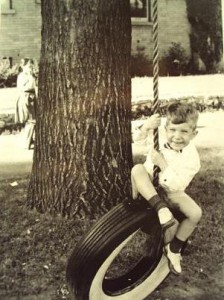God was generous to give us five senses. If one malfunctions, the other four can pick up the slack. I no longer have a sense of smell after receiving “the atomic bomb of antibiotics” during a hospital stay in 2005. (“Scent or smell?” Jan. 9, 2010) But I don’t view this as a handicap. On some occasions it’s actually a benefit. I can change a baby’s diaper without gagging and am not bothered by ammonia-based cleaning products. But what about missing smells meant to hint at danger?
Last week I got a “taste” of that. While our hardwood floors were being refinished, Birgitta and I had been staying in a house without an internet signal. We decided to head home for a quick in-and-out to get on line. She sat on the front steps with her laptop, and I went inside to a tiny area on the tile floor where an old tabletop computer was still attached to the cable.
Nested amidst stacked furniture, bins of books, a piano, fridge and stove, I booted up and began checking email. The wood floors six feet away were still tacky with that morning’s sealant application, but of course I couldn’t smell it.
In a few minutes my eyes began to sting, but I figured a short night’s sleep was the reason. Rapid blinking helped, and I forgot about it until a strange ache behind my eyes got my attention. “I’ll use my Visine when I get back in the car,” I thought. Then the headache began, mild at first but eventually pounding, and I thought I might have felt a chest pain.
An hour had gone by when Birgitta walked in with her closed laptop, ready to leave. “Oh Mom, it reeks in here!” she said. “How can you stand it?”
“I can’t smell anything,” I said.
“I’m gonna wait outside,” she said. “My eyes are stinging.” And that’s when I realized my nose had missed something important.
Scripture includes a wonderful parallel to my lack of olfactory common sense. God tells us the world is full of opportunities to make wise or foolish choices. Many of them don’t “smell bad” in the beginning, but in time they lead to a poisonous stench. Lowering our guard against sins that seem to smell good at the moment will lead us into a noxious wasteland of ruined relationships and rotted dreams.
Although I can’t smell polyurethane, I know it’s important to keep my spiritual sense of smell sensitive so it can recognize deadly behavioral odors. Thankfully that sense doesn’t depend on olfactory nerves and can’t be damaged if only I’m willing to be careful of what I will and won’t “smell”. But if I sniff around where I ought not to be, before long my nose won’t know what it knows.
If that happens, I hope God gives me spiritually-stinging eyes to let me know I should take my nose and go!
“The idols of the nations… have noses but cannot smell. And those who make idols are just like them, as are all who trust in them.” (Psalm 135:15, 17, 18)








